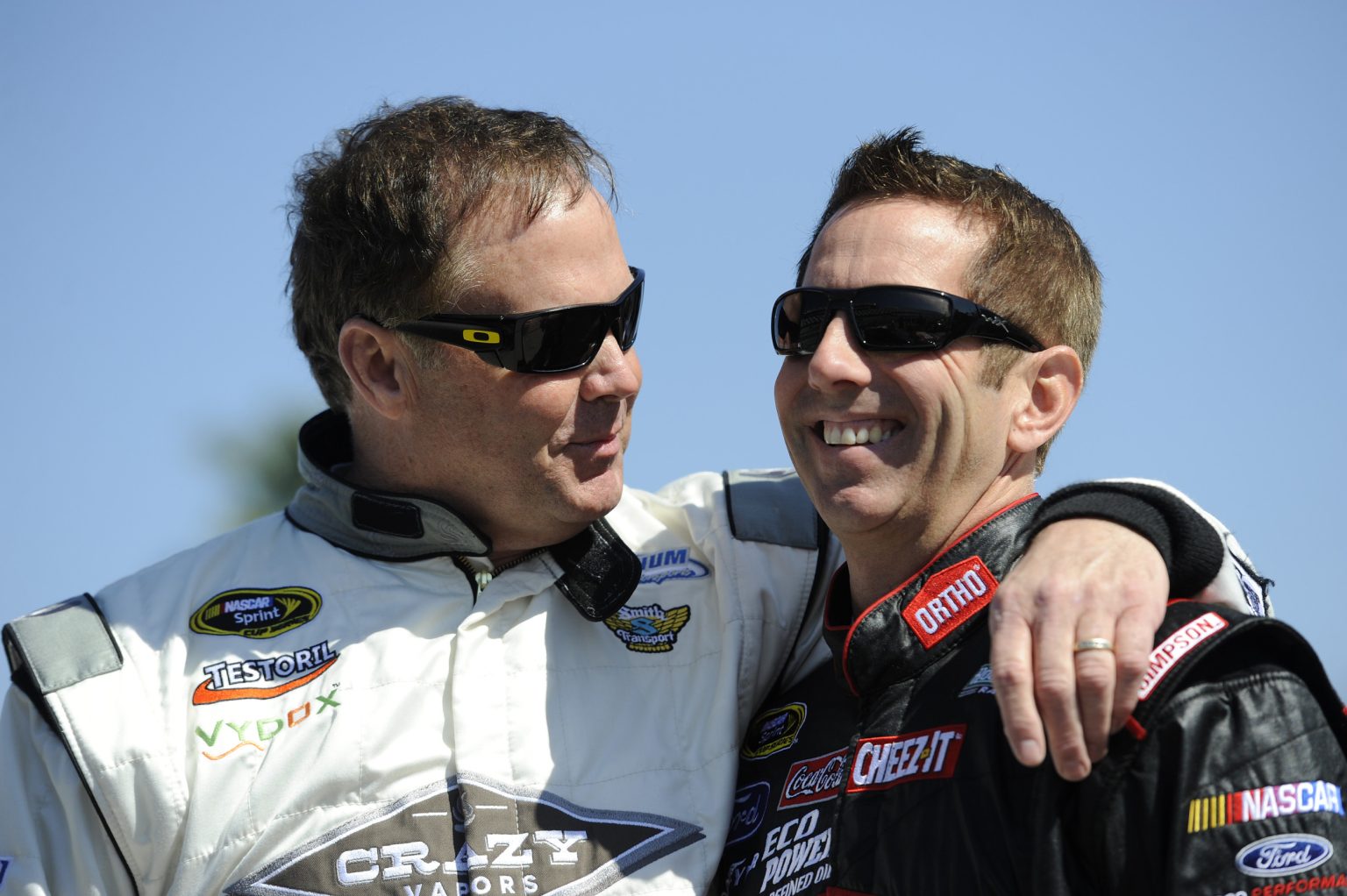Veteran NASCAR driver Mike Wallace’s aspirations for a Daytona 500 comeback were abruptly dashed by NASCAR’s disqualification, sparking a heated public dispute and highlighting the complexities of balancing experience with current competitiveness in professional motorsports. Wallace, a seasoned racer with over 30 years of experience and multiple wins in the Xfinity and Truck Series, intended to compete in the 2025 Daytona 500 with MBM Motorsports. However, NASCAR officials revoked his eligibility, citing his inactivity in national series racing since 2015 as the primary reason. This decision, delivered just weeks before the iconic race, blindsided Wallace, who had received prior verbal assurances from NASCAR management, leading him to believe his participation was secure.
The disqualification struck a nerve with Wallace, who felt deeply disrespected by the perceived dismissal of his extensive racing history. Having competed in over 809 NASCAR National Series events, including 197 Cup Series races, and achieving victories at Daytona International Speedway, Wallace believed his track record spoke for itself. His frustration stemmed not only from the lost opportunity to compete in the Daytona 500 but also from the implication that his years of dedication and past successes were deemed insufficient to warrant participation. He publicly expressed his disappointment, characterizing the decision as a betrayal and questioning the fairness of allowing less experienced drivers guaranteed starting positions while he, a veteran, was denied entry.
The situation further complicates the position of MBM Motorsports, an “Open” team without a guaranteed starting spot in the Cup Series. Their reliance on funded drivers makes Wallace’s disqualification a significant setback, forcing them to scramble for a replacement just weeks before the season opener. This highlights the precarious nature of “Open” teams in NASCAR, constantly battling for resources and driver availability to secure their place on the grid.
The crux of the issue lies in NASCAR’s balancing act between honoring past achievements and prioritizing current competitiveness. While Wallace’s experience and history are undeniable, the sport’s rapid evolution demands drivers maintain consistent engagement to stay abreast of the latest car technology and racing strategies. NASCAR’s decision reflects a policy focused on ensuring all competitors possess relevant, recent experience, likely aimed at maintaining a high level of performance and safety on the track. This approach, however, can sideline veteran drivers who, despite their past accomplishments, may struggle to secure competitive rides after periods of inactivity.
Wallace’s vocal criticism of NASCAR’s decision ignited a debate within the racing community. Some argue that his lengthy hiatus from top-tier racing justified NASCAR’s stance, emphasizing the importance of current proficiency. Others, however, sympathize with Wallace, viewing the disqualification as a harsh judgment on a dedicated driver who deserved the chance to prove his capabilities. This controversy reveals the inherent tension between honoring legacy and adapting to the ever-changing demands of a dynamic sport.
The Mike Wallace disqualification underscores the evolving landscape of professional motorsports. It reinforces the importance of continuous engagement at the highest level of competition and the challenges faced by veteran drivers seeking to return after periods of absence. The incident also illuminates the pressures faced by smaller, “Open” teams in navigating the competitive world of NASCAR and the delicate balance NASCAR must strike between acknowledging past contributions and maintaining the current standards of the sport. Whether Wallace’s outcry leads to a reconsideration of these policies remains to be seen, but the episode has undoubtedly sparked conversation about the value of experience and the criteria for participation in one of the world’s premier racing series.

